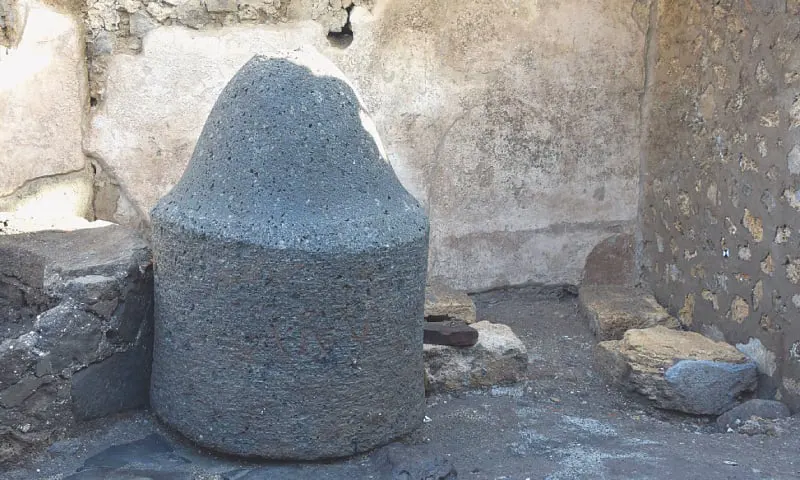Archaeologists excavating the ancient Roman city of Pompeii have uncovered a “prison bakery” where slaves and blindfolded donkeys were kept locked up underground to grind grain for bread, officials said this week.
Underneath a house in the ruins they found “a cramped room with no view of the outside world and with small windows high in the wall, with iron bars, to let the light in”, the Archaeological Park of Pompeii announced.
Archaeologists deduced they had found a “prison bakery”, the Unesco World Heritage Site near Naples, southern Italy, said on its website. They also discovered “indentations” in the floor “to coordinate the movement of the animals, forced to walk around for hours, blindfolded”.
The house, on the 44-hectare site that is cur-rently under excavation, was divided into a residential area “decorated with exquisite Fourth Style frescoes” and a “productive quarter”, the bakery.
Three skeletons were discovered in one room of the bakery, showing that the house was inhabited. The bakery, where slaves and animals were forced to perform the backbreaking task of turning the millstones, had no doors or communication with the outside world.
“It is, in other words, a space in which we have to imagine the presence of people of servile status whose freedom of movement the owner felt the need to restrict,” wrote Pompeii director Gabriel Zuchtreigel in a scholarly article.
“It is the most shocking side of ancient slavery, the one devoid of both trusting relationships and promises of manumission, where we were reduced to brute violence, an impression that is entirely confirmed by the securing of the few windows with iron bars.”—APP










